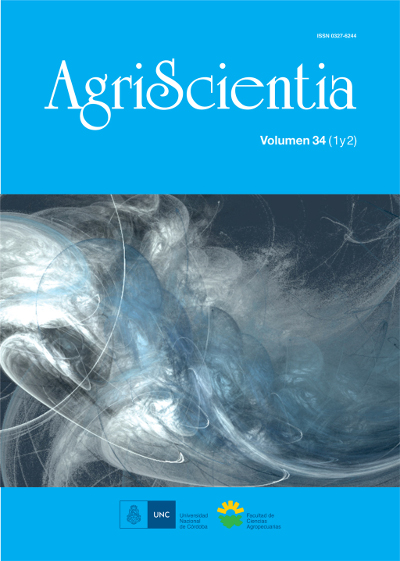In vitro establishment of four olive varieties grown in the field (Olea europea L.)
Main Article Content
Abstract
Plant sanitation through in vitro culture helps addressing sanitary issues that affect olive production (Olea europaea L.). Our goal was to develop a protocol for in vitro establishment of plant material obtained from adult plants grown in the field. We tested four methods of disinfection, the explants response to two cytokinins (BA, zeatin), two carbon sources (sucrose, mannitol), and activated charcoal (0 y 1 g.L-1), and the impact of the season in which materials were collected. The use of ultrasound during disinfection allowed satisfactory establishment rates (44 %). BA improved sprouting (36 % vs. 24 %), and so did mannitol (75 % vs. 20 %). The addition of activated charcoal did not show statistically significant effects on both survival and sprouting. We observed variations depending on the season of collection and the plant variety. Spring was –for all varieties– the most favourable time to collect explants: the highest sprouting rates (21 % to 62 %) and the lowest contamination levels were obtained, Frantoio and Manzanilla being the varieties least affected by contamination.





